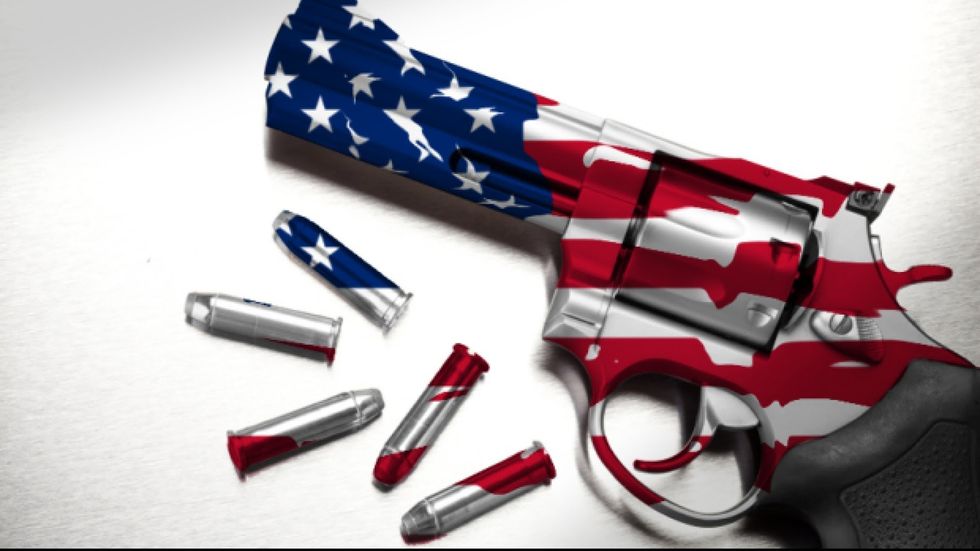In the wake of the Vegas Massacre, people from both sides of the political aisle have begun another round of debating the necessity of gun reform and/or the extent in which gun reform needs to be implemented. Those who are most steadfast about maintaining and upholding their gun rights cling fiercely to the second amendment:
“A well-regulated Militia, being necessary to the security of a free State, the right of the people to keep and bear Arms, shall not be infringed.”
Gun enthusiasts staunch opposition to gun reform may seem cryptic after what occurred just a week ago; however, if one considers the connection between this amendment and the enslavement of Africans, then ‘cryptic’ becomes a painful euphemism.
The need to possess the ability to defend oneself against a tyrannical-turned government is a talking point often parroted by gun enthusiasts as to why the second amendment is important. But this single talking point does not even explain half of the debates that were had around this amendment prior to its ratification. People representing Northern states mainly desired the second amendment as a means of preventing standing armies from forming – an army supplied by the government during a time of peace that also had the power to overthrow a government.
People representing Southern states opposed the amendment for two reasons. The first reason being “that Article 1, Section 8 of gave the federal government the ability to destroy state militias through lack of funding and disuse.” To fully understand the value of militias to influential Southerners, one must know of the role of militias in the South during the 18th and 19th century.
“Slave patrols had three primary functions: (1) to chase down, apprehend, and return to their owners, runaway slaves; (2) to provide a form of organized terror to deter slave revolts; and, (3) to maintain a form of discipline for slave-workers who were subject to summary justice, outside of the law, if they violated any plantation rules.”
Preserving and strengthening the system of slavery and making sure that this system could not be threatened from a federal level was the main concern of Southerners in opposing the second amendment.
The second reason the anti-federalists opposed the second amendment was in fear of the Federal Constitution being able to override state constitutions. This was articulated best by Patrick Henry at the Virginia Ratification Convention, where he went on to condemn the influence of the Federal Government during times of war. In doing this, he strongly referenced efforts to recruit blacks during the Revolutionary War in, where they were promised emancipation if they fought. He used this to further draw upon the fear of the federal government “pronounc[ing] all slaves free” in time of war or national catastrophe as the reason for his opposition to the second amendment.
Southern states initially refused to ratify the Constitution for several reasons, the initial language of the second amendment being one of them. They favored the second amendment as it gave their slave patrols (militias) access to military-grade artillery (arms), but opposed it as it initially stated that the militia was necessary for a free country, not state. This change from country to state was soon implemented to appease the fears of Southern states – a change that would effectively strengthen slave-patrols and provide permanence to the system of slavery for nearly one hundred more years; a change that would provide a police-state framework for the modern policing of descendants of slaves; a change that would have guns laws determined on a state-by-state basis, where Southern states continue to have looser gun laws and an unprecedented number of gun deaths. The fifty-nine individuals killed and 500 injured is just one of many egregious byproducts of Southern plantation owners gluttonous desire to perpetuate the enslavement of blacks in this country.






 The minimum wage is not a living wage.
StableDiffusion
The minimum wage is not a living wage.
StableDiffusion
 influential nations
StableDiffusion
influential nations
StableDiffusion












